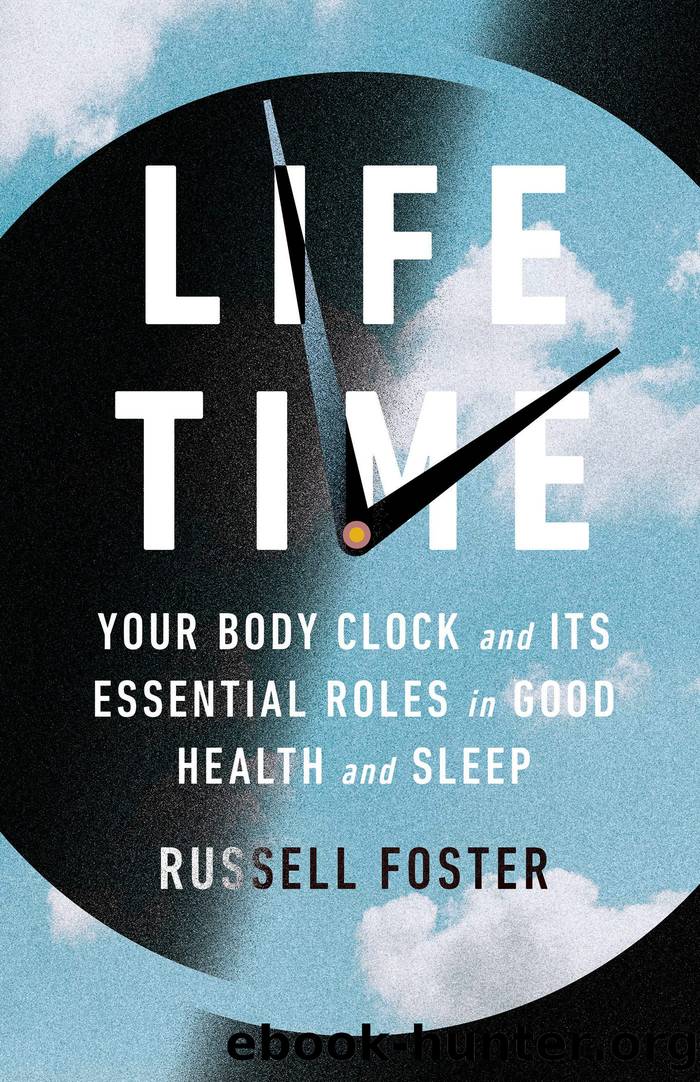Life Time: Your Body Clock and Its Essential Roles in Good Health and Sleep by Russell Foster

Author:Russell Foster
Language: eng
Format: epub
Publisher: Yale University Press
Published: 2022-09-15T00:00:00+00:00
Why take anti-hypertension medication at night if the danger is most acute in the morning?
This relates to the pharmacokinetics of the antihypertensive medications, in terms of how they are absorbed and distribution throughout the body; how the drugs are metabolized; and then finally broken down and excreted. These processes all take time.658 By taking antihypertensive medication at bedtime the drug levels rise and remain in the body at relatively high levels (long half-life), acting to reduce blood pressure across the time window when the sharp rise in blood pressure normally occurs, between 6 a.m. and 12 noon. If antihypertension medication is taken in the morning, drug effectiveness will have risen and then peaked after the critical surge in blood pressure.
As discussed in chapter 8, some antihypertensives can increase urine production.526 Antihypertensive diuretics stimulate the kidneys to remove water and salt from the blood into the urine. This reduces blood volume, and so reduces blood pressure, but it increases urine production. Calcium channel blockers relax the blood vessels and lower blood pressure. But they will also act to inhibit bladder contraction and reduce bladder emptying, making it necessary to pee more and pee at night.528 So, if nocturia is a problem, then it may be a good idea to discuss which antihypertensives may be best for you with your health care provider.
Download
This site does not store any files on its server. We only index and link to content provided by other sites. Please contact the content providers to delete copyright contents if any and email us, we'll remove relevant links or contents immediately.
The Complete Stick Figure Physics Tutorials by Allen Sarah(7363)
Secrets of Antigravity Propulsion: Tesla, UFOs, and Classified Aerospace Technology by Ph.D. Paul A. Laviolette(5367)
Thing Explainer by Randall Munroe(3930)
The River of Consciousness by Oliver Sacks(3599)
The Order of Time by Carlo Rovelli(3188)
How To by Randall Munroe(3106)
A Brief History of Time by Stephen Hawking(3022)
I Live in the Future & Here's How It Works by Nick Bilton(2994)
What If?: Serious Scientific Answers to Absurd Hypothetical Questions by Randall Munroe(2700)
The Great Unknown by Marcus du Sautoy(2691)
Midnight in Chernobyl by Adam Higginbotham(2541)
Blockchain: Ultimate Step By Step Guide To Understanding Blockchain Technology, Bitcoin Creation, and the future of Money (Novice to Expert) by Keizer Söze(2493)
Networks: An Introduction by Newman Mark(2404)
The Meaning of it All by Richard Feynman(2351)
Easy Electronics by Charles Platt(2325)
The Tao of Physics by Fritjof Capra(2272)
Midnight in Chernobyl: The Untold Story of the World's Greatest Nuclear Disaster by Adam Higginbotham(2225)
Introducing Relativity by Bruce Bassett(2116)
When by Daniel H Pink(2114)
